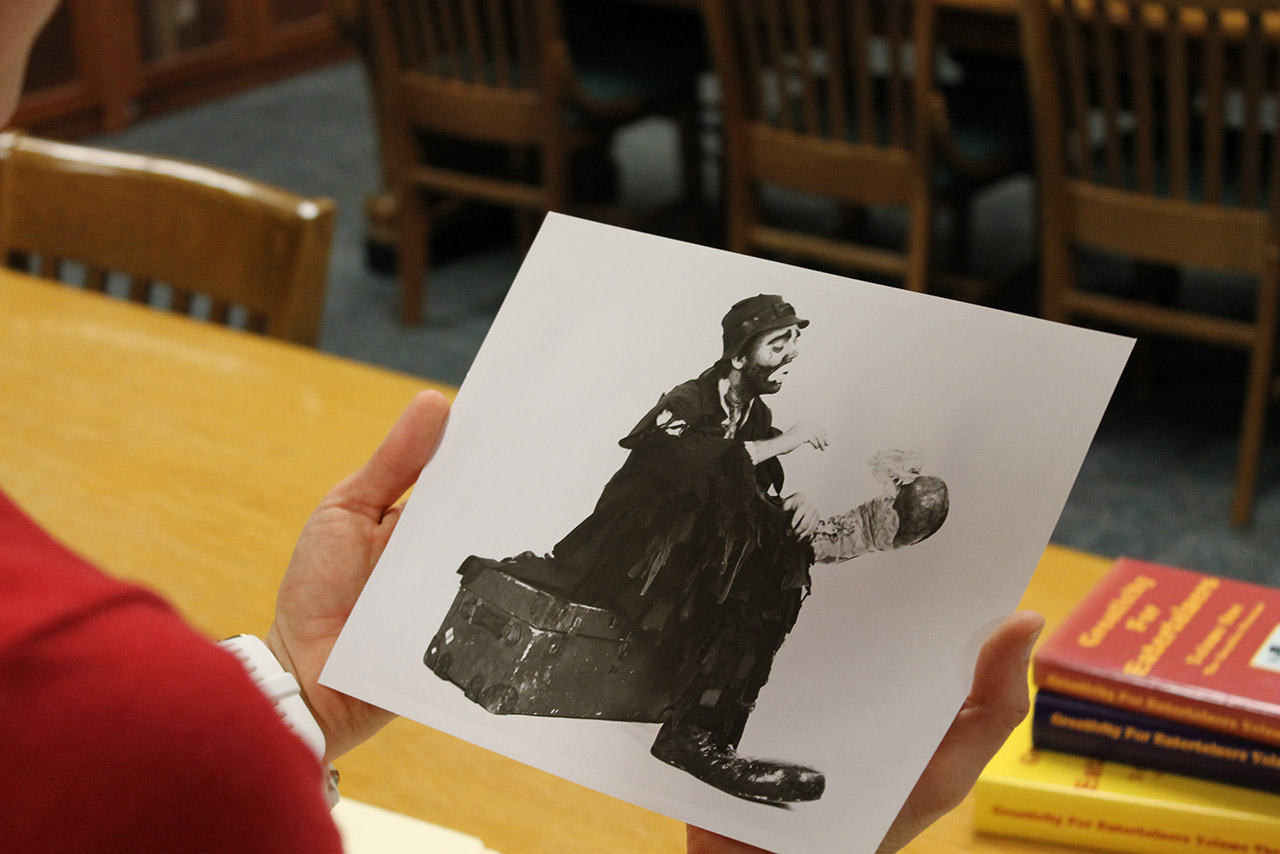For Bruce “Charlie” Johnson, clowning is serious business.
“The art of clowning tends to be underrepresented in academic research and circus archives,” said Johnson, a clown historian who is a member of the Circus Fan Associations and Circus Historical Society. “While clowns are frequently the most popular part of the circus with the general audience, it is often not considered a serious enough topic for academic study.”
In hopes of preserving the history of the art, Johnson and his wife, Carole, have been donating items to the Circus and Allied Arts Special Collection in Milner Library’s Special Collections for years. The couple recently established an endowment fund to support the collection as well. “I hope that the endowment fund will help Milner Library continue the excellent work they are already doing with the Circus and Allied Arts Collection and to expand upon the collection,” Johnson said.
While working on scholarly articles on clowning, Johnson often saw Milner Library referenced as a source of information. He began corresponding with Special Collections Director Maureen Brunsdale for source material. It was while attending national conferences on clowning that Johnson heard Brunsdale speak on the Milner collection that started in 1955. Her description of the collection that includes more than 8,000 books, photographs, posters, costumes, sheets of music, business records, and other memorabilia intrigued Johnson. So when the World Clown Association held an annual convention in Chicago in 2014, Johnson traveled to Normal with International Clown Hall of Fame inductees Richard Snowberg, an Illinois State alumnus, and Arthur Pedlar, a clown historian from England.
“Maureen gave us a tour of the circus collection, and we were impressed by how well the materials are preserved and organized,” said Johnson. “A graphics class was going to be studying circus posters on that day, and we were all impressed how the collection is integrated into the college curriculum.” All three men began donating items to the Milner Library circus collection.
Johnson and his wife hope the collection will enable others to learn about the wonders of clowning. Having spent years performing as a clown and performing clown ministry, Johnson now teaches the art of clowning to others. “I discovered that my classes weren’t just about being a clown. They included life skill lessons, particularly on how to relate with others,” he said. “There was anecdotal evidence of the healthful benefits of positive humor. Circus clowns have visited hospital patients for over 100 years. I have become convinced that clowns have a positive impact on those around them.”

